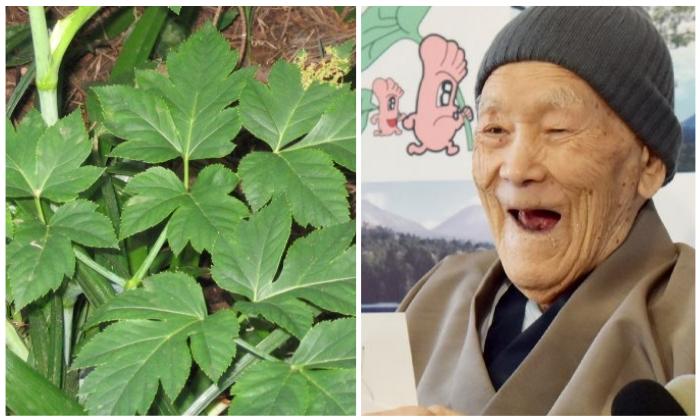A Japanese plant traditionally eaten by samurai warriors could hold the secret to longevity, scientists say.
The Ashitaba plant (Angelica keiskei koidzumi) has a long history of being used to aid wound healing and prevent infection. Its name literally means “tomorrow’s leaf” in Japanese, because it grows back quickly after being cut.
According to traditional Japanese medicine, the slightly bitter leaves of the Ashitaba plant works wonders in extending a healthy life. Now, a new study may provide some good scientific evidence for these traditional beliefs.
![(<bdi><a class="new mw-userlink" title="User:Belikel (page does not exist)" href="https://commons.wikimedia.org/w/index.php?title=User:Belikel&action=edit&redlink=1">Belikel</a>/</bdi>Wikimedia Commons <span style="font-weight: 400;">[CC BY-SA 3.0 (ept.ms/2Bw5evC)]</span>)](/_next/image?url=https%3A%2F%2Fimg.theepochtimes.com%2Fassets%2Fuploads%2F2019%2F02%2F26%2FAngelica_keiskei_leaves-600x377.jpg&w=1200&q=75)
(Belikel/Wikimedia Commons [CC BY-SA 3.0 (ept.ms/2Bw5evC)])






